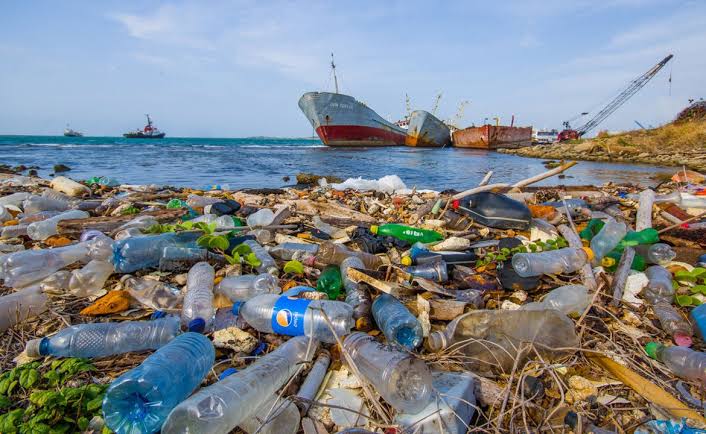
Marine experts have raised alarm over the growing threats posed by marine debris, pollution, and national indifference to Nigeria’s maritime assets, warning that the country’s blue economy may remain just an ambition, unless urgent interventions are made.
Rear Admiral FD Akpan (Rtd), while speaking last week at an executive course on the blue economy for media practitioners organised by the International Maritime Institute of Nigeria (IMION), decried the heavy pollution of the nation’s waterways and the chronic under-utilization of its marine assets. He noted that Nigeria’s lagoons and beaches have increasingly become marine dumpsites, with Tarkwa Bay beach in Lagos described as the world’s largest recipient of refuse.
“Tarkwa Bay is the recipient of the highest marine dumpsite for refuse on earth. You can quote me. Bonny comes close as second. If you stand by the Seine River in Paris, you’ll count more than 50 ferries operating actively. Meanwhile, our own lagoons are virtually deserted,” Akpan lamented.
The former naval officer and current Chairman, Board of Trustees of the Maritime Security Providers Association of Nigeria (MASPAN), also cited sea blindness as a major impediment, describing it as a widespread ignorance among policymakers, the public, and academia about the economic and strategic importance of Nigeria’s maritime domain.
“There is a widespread ignorance of the importance of maritime space and naval power. It leads to poor investment, weak policy implementation, and missed economic opportunities,” he said.
Rear Admiral Akpan also warned that marine debris was increasingly clogging navigational channels, damaging vessels, and raising operational costs across Nigeria’s ports and inland waterways, further slowing trade and discouraging maritime investments. He linked this directly to the inefficiencies in cargo clearance, which currently takes a minimum of four weeks in Nigeria compared to as little as six hours in countries like Singapore.
He stressed that a clean and navigable marine environment was critical to achieving the targets of the 10-year Blue Economy Policy (2025–2034), which aims to attract billions of dollars in investment and create three million jobs. “The obstruction caused by marine debris is a silent threat to maritime trade flow. It clogs navigation routes, damages vessels, and increases port inefficiencies,” Akpan said.
He called for the establishment of a clearly defined maritime strategy backed by a capable navy and coast guard, describing these as essential prerequisites for global maritime relevance.
Also speaking at the event, Dr. Obiora Madu, Founder of Multimix Academy, recalled that Nigeria once had a thriving fishing industry supported by large-scale trawlers. He lamented the sector’s decline and called for urgent reforms to reposition Nigeria as a leading maritime player in West and Central Africa.
He pointed to the recent classification of the Lome seaport in Togo as the shipping hub of the region as a wake-up call, warning that Nigeria’s dominance in maritime trade is slipping away due to environmental neglect, outdated infrastructure, and weak policy execution.















